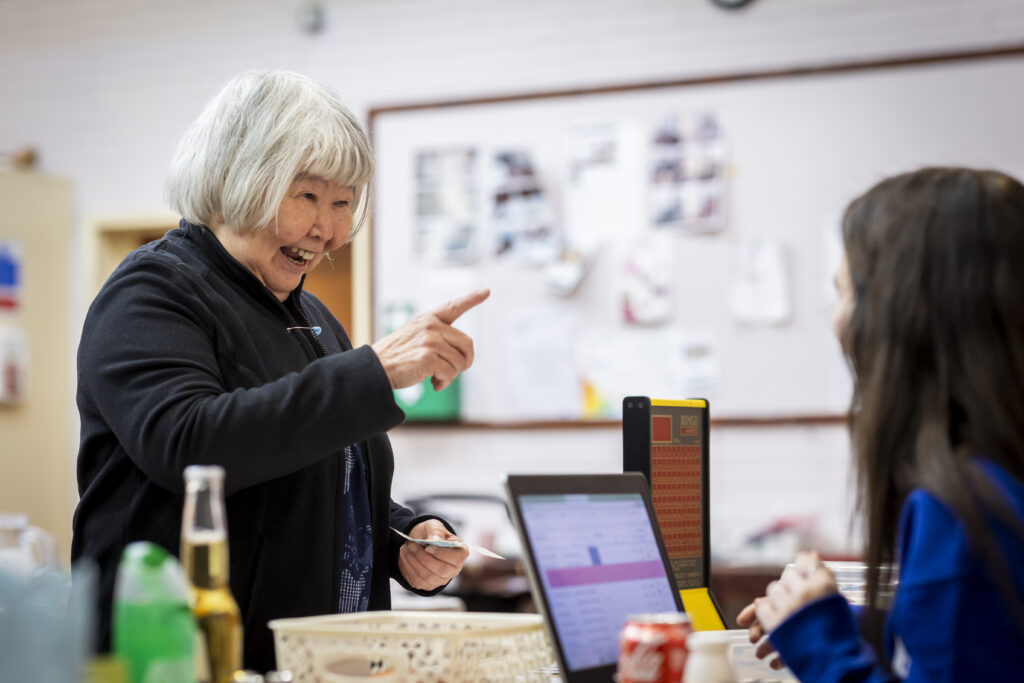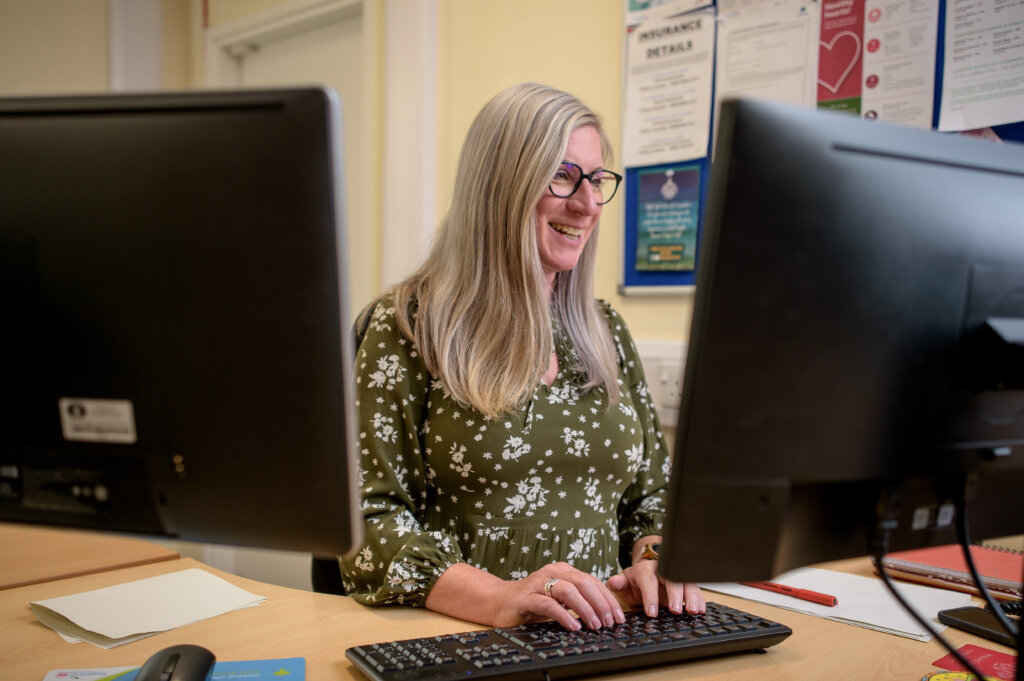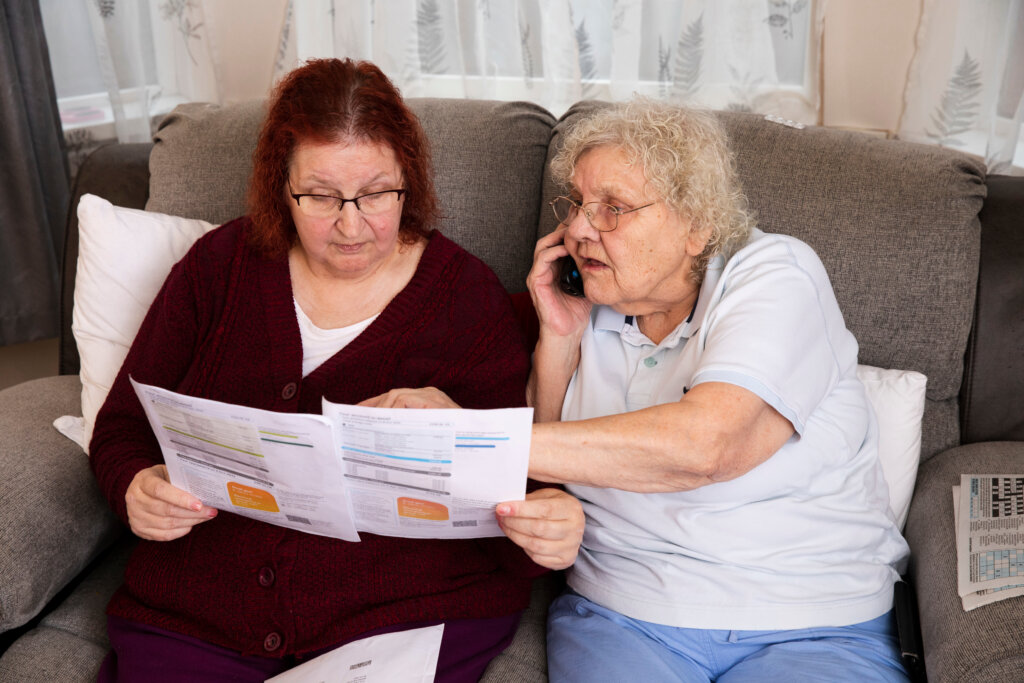
Finances and housing
Financial security
Financial stability, especially as you approach and enter retirement, is crucial. It means having enough money coming in or saved up to live well without worrying. There’s a clear link between having a secure financial situation and being healthier overall. In fact, studies have shown that when you’re financially stable, you tend to have better mental wellbeing.

And while women often live longer than men, they usually retire with fewer savings. Several factors contribute to this. Taking time off work for unpaid care, such as looking after family, is one. The gender pay gap, or how we value the contribution of men and women in the workforce, is another. Jobs that are traditionally female-dominated, like nursing, teaching, or aged care, tend to have lower salaries.
The increasing prices of everyday essentials, like food and electricity, add another layer of financial strain for older women.
There’s an unfortunate misconception that women aren’t adept at handling finances. This can stop some of us from taking charge of our financial situation. But it’s essential to debunk this myth. Everyone, regardless of gender, should have the ability to manage their finances. Good financial planning throughout one’s life can lead to a more comfortable retirement.
If you’d like to learn more about where to access financial support and planning, these resources might help:
- The National Debt Helpline has free and confidential advice from professional financial counsellors.
- WIRE, based in Victoria, has free information, training and guidance on Financial Wellness.
- You can listen to the “Your Two Cents Worth” and “Money Extra” segments of the podcast Baby Boomers Guide to Life in the 21st Century, an initiative of The Older Women’s Network.
Unfortunately, studies also show that women over the age of 80 are most at risk of financial abuse. For more detail on financial abuse and its relationship to elder abuse see the section on Family Relationships.
Women’s employment as we age

Many older women want to continue paid work – or need to, given the lack of financial security some of us experience. In fact, older women’s rate of participation in the workforce rose by more than 30% between 1995 and 2013. This points to the clear economic benefits to our society that older women bring through our paid employment.
But age and sex discrimination can combine in the workplace to make it harder for older women than older men to find work, be paid appropriately for the skills we bring, or find ongoing, secure work. As the former Age Discrimination Commissioner Dr Kay Patterson noted at the 2021 National Summit on Women’s Safety, barriers to finding employment include:
- discriminatory attitudes towards older women’s skills and intelligence; and
- structural barriers such as a lack of flexibility.
Together, gendered ageist attitudes and inflexible jobs make it hard for older women to combine paid work with unpaid care work.
There are organisations that exist to help older women find and remain in paid work. One of these is WomenCAN Australia, which provides women with free training and upskilling, pathways into paid work, and a peer support network.
Another is Dress for Success, an international not-for-profit organisation with branches in most capital cities in Australia that supports women with programs, peer support and clothing to help women with all aspects of applying for or keeping a job.
Housing security
Housing insecurity is the lack of secure, ongoing and reliable housing. It can be caused by high housing costs, having a low or no income, poor quality housing, unstable neighbourhoods, or overcrowding. Housing insecurity is increasing in Australia and is a major concern for older women. While older women are being seen as ‘the new face of homelessness’, they have been experiencing housing pressure for a long time.
Watch these four older women share their experiences with housing and homelessness.
One reason that housing insecurity is increasing is that housing is getting more expensive, creating stress for renters and mortgage-holders alike. However, little has been done to address the special challenges faced by older women.
A report about older women and housing in Australia highlights a concerning issue: many face challenges finding a stable and secure place to live. Some reasons for this include:
- The gender pay gap, or difference in pay between men and women
- Cultural expectations of women having roles that aren’t paid, like caregiving
- Major challenges in life like losing a loved one, health problems, or losing a job.
As a result, many women might not have saved enough money over the years. And not only is it hard to find affordable housing, but there is a shortage of housing tailored for single older women’s needs.
Many women who find themselves homeless later in life have previously always had stable housing. This means some might not see themselves as homeless or know where to get help. This group is sometimes said to be ‘invisible’ because their struggles aren’t always seen.
‘I cared for mum probably at least 20 years. Mum passed away, and I hadn’t considered me or my future, and I ended up at risk of homelessness.’
Robyn Norman, 60

Right now, there’s a gap in the services provided for the growing number of women who are homeless or at risk of becoming homeless. In both our cities and rural areas, we need more housing options designed for older women living on their own.
To address this, some are proposing community housing projects. The Australian Human Rights Commission, for example, has recommended co-housing, where older women have their own spaces but also share some communal areas. This approach can make housing more affordable while also offering privacy and social connections.
These efforts alone are not enough, and it is vital that there are more coordinated actions by both the federal and state and territory governments to address older women’s housing needs as a fundamental human right.
If you need some support with housing, here are some services that can help:
- COTA: For older Australians is the leading not-for-profit organisation representing the interests and rights of people aged 50+. They advocate strongly on the issue of housing and financial insecurity and have many useful resources on their website.
- Housing for the Aged Action Group (HAAG) provides independent advice, information and practical housing support for over 50s. Their website also has resources dedicated to diverse communities including people from migrant and refugee backgrounds or who are LGBTQI+ (more resources for this community are shared below).
- The Older Women’s Network have more information on older women and homelessness. You may also wish to donate to their “Buy A Brick” campaign that raises funds as part of their efforts to end homelessness through building housing for older women.
‘Having secure housing meant for me, that I could be me again.’
Robyn Norman, 60
LGBTQI+ aged care
Older LGBTQI+ people have lived through times in which their very existence was threatened. Many now living in aged care homes may have been subjected to aversion therapies, or had to hide their identities from family, friends, and health professionals.
The issues and needs specific to older LGBTQI+ people have been under-researched in medicine and aged care studies. However, activism on the part of the LGBTQI+ community is bringing more attention to the needs of this group. This has been recognised in the federal government initiating an LGBTI Ageing Strategy.
LGBTQI+ Health Australia also has some great resources – including a list of questions to ask an aged care facility, to help you decide if they will meet your needs.
AMS (2019) Prevention of falls and fractures. Australian Menopause Society. Healesville, Vic.
Australian Human Rights Commission (2019) Older women’s risk of homelessness: background paper. AHRC, Sydney.
Feldman S, Radermacher H (2019) Vital conversations: giving older women in greater Melbourne a voice. Lord Mayor’s Charitable Foundation, Melbourne.
Field et al (2017) Walking up to one hour per week maintains mobility as older women age: findings from an Australian Longitudinal Study. Journal of Aging And Physical Activity. 25(2): 269–276.
Hillcoat-Nalletamby S (2014). The Meaning of Independence for Older People in Different Residential settings. The Journals of Gerontology.
Kirkman, Maggie (2023) Time of Our Lives: Celebrating Older Women. Monash University Publishing, Melbourne.
Kwok W, Dolja-Gore X, Khalatbari-Soltani S, et al. (2022) 488 Falls and physical activity in older Australian women from two different generations. Injury Prevention. 28: A74.
OPA Vic (2023) Your rights. Office of the Public Advocate Victoria, Melbourne.
OWNNSW (2023) Financial security and economic empowerment: older women are being left behind. Older Women’s Network NSW. Sydney.
Oxley J, Logan D, Coxon S, Koppel S (2022) Understanding current and future transport needs of older Australian drivers to guide development of sustainable and smart initiatives to support safe mobility of older adults. Sustainability. 14(10): 5906.
Pachana N, Leung J, Gardiner P, McLaughlin D. (2016) Moderating effects of social engagement on driving cessation in older women. International Psychogeriatrics. 28(8): 1237-1244.
Patterson, K (2021) National Summit on Women’s Safety: Safety and Security for Older Women. Australian Human Rights Commission.
Petersen M, Winterton R, Warburton J, Wilson J (2022) Negotiating the care convoys for a diverse group of older Australians living in rural communities: a large qualitative study. Ageing And Society. 2022 (): 1–21.
Russell S (2020) Financial abuse already hurts older people, especially women, the economic downturn now heightens the risk. Women’s Agenda. (Jun 14): 1 webpage.
Thredgold C et al. (2019) An effective homelessness services system for older Australians. Australian Housing and Urban Research Institute Limited, Melbourne. – (AHURI Final Report; 332).
United Nations (2021) A/76/157: Human rights of older women: the intersection between ageing and gender. United Nations,
WGEA (2020) Women’s economic security in retirement: insight paper. Women’s Gender Equality Agency, Sydney.
White G, Cevik M, Maglen K (2020) The system is failing older women: we need specialist services. Parity. 33(9): 27–28.
Women and Money (2023) Women’s experience with the financial sector. WIRE. Melbourne.





